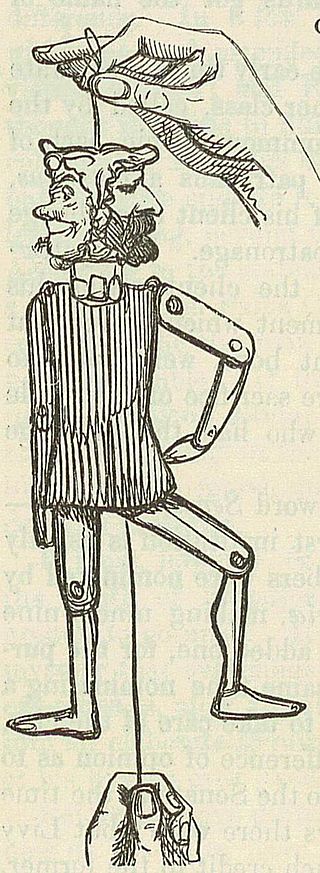
Puppet god?
The disciples were silent. Conversation among the twelve had risen and fallen like the undulations on the hilly landscape around them until Jesus had pulled them aside for a rest stop. Rather than refreshing them, Jesus had for a fourth time predicted His imminent betrayal and execution. That was a conversation-killing moment.
Their minds may have been racing but their tongues were silenced as they struggled to make sense of Jesus’ forewarning. ‘How could this terrible reversal be true?’ they must have wondered. Their understanding of the ancient Scriptures had led them to believe the Anointed One—Messiah—would be a conquering leader, the sovereign of a mighty and glorious kingdom; their historical subservience to the Egyptians, Babylonians, Assyrians, Greeks and Romans—to any earthly nation—would become but a distant memory. What glory! But this: the death of their leader, could it happen? They were speechless. Unbelievable or traumatic news often has that effect. For others, disturbing news opens the very floodgates of speech. Adrenaline can loosen tongues; words—long pent-up thoughts and feelings—rush out in unheeding cascades. This was the case for James and John, two of Jesus’ closest friends.
“Teacher, we have something we want you to do for us.”
“What is it? I’ll see what I can do.”
“Arrange it,” they said, “so that we will be awarded the highest places of honor in your glory—one of us at your right, the other at your left.” (Mark 10:35-37 The Message).
It seems the two had been listening to Jesus. They had heard him say that those who had invested time and energy to follow Jesus would not fail to earn profits on that investment. It didn’t take much more than ambitious collusion for the two to agree that what they wanted was their share of the power and prestige when Jesus, by their interpretation, imminently overthrew the Roman Empire.
But their hearing had been more than a little selective. They had failed to take into consideration Jesus’ teaching and consistent modeling of humility and servanthood. This, not sought-out honour, was the criterion for sharing in the glory of God’s kingdom. James and John had been with Jesus when He had explained, “If anyone would come after me, he must deny himself and take up his cross and follow me. For whoever wants to save his life will lose it, but whoever loses his life for me and for the gospel will save it. What good is it for a man to gain the whole world, yet forfeit his soul?” (Mark 8:34-36).
To their credit, it seems they recognized the sovereignty of Jesus and had unflinching faith that He was the long-awaited Messiah. They might even have been beginning to grasp the truth of His claim to be the Son of God—the eternally existing all-powerful One. Their request was a prototype prayer, of sorts. But they were missing a very important piece of the equation.
“Prayer,” explains Timothy Keller, “ is not a consumer tool. It is a Refiner’s fire.”
This is a good thought for us to ponder if we want to learn from James’ and John’s experience with Jesus. The request of the brothers illustrates our own tendency to develop a consumer mentality in our relationship with Jesus. When we defend our selfish prayers with the explanation “Jesus wants me to be happy!” we’ve short-changed ourselves. The divine plan for humanity is to be recreated in the vast completeness of Jesus’ likeness: not just happy, period, but happy and wise and good and just and compassionate and sensitive and true and noble and right and pure and lovely and admirable and excellent and…and the list goes on. It is inexhaustible. This is the eternity for which God created us, and—as the disciples would discover—for which Jesus would die for all humankind.
Jesus is not a puppet god. He’s not a genie in a bottle waiting to receive our wishes as his commands. He’s the One who offers us far more than that. He offers us escape from our selfish selves and entrance into a life of acceptance and companionship with Him as little by little He makes us like Himself. He wants us to approach Him with confidence knowing that He wants and will ensure our greatest good. So rather than saying, “Teacher, we have something we want you to do for us,” we can ask, “Jesus, what would you have us to do today, in this situation, that would best glorify You?” Then listen for His answer.
(Photo Credit: By John Leech – http://posner.library.cmu.edu/Posner/books/book.cgi?call=937_A138C_1850, Public Domain, https://commons.wikimedia.org/w/index.php?curid=1064389)



